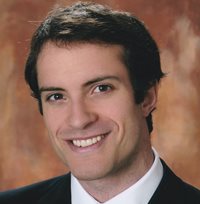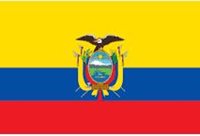Ryan Nightingale
 Originally from the town of Chatham, NY, Ryan is a second-year MD candidate at SUNY Upstate Medical University in Syracuse, NY. His interest in tropical medicine began during his undergraduate studies at Dartmouth College, where he majored in Neuroscience and minored in Global Health Anthropology. During his third year at Dartmouth, he spent the summer volunteering and shadowing in clinics in Northern Peru, where he came face-to-face with tropical diseases, particularly dengue fever, for the first time. Seeing the debilitating effects of the disease, as well as the tremendous efforts being put forth to prevent its transmission, bolstered Ryan's passion for tropical medicine and the fight against infectious diseases. Following his summer in Peru, he participated in and helped organize a medical mobile campaign in Nicaragua, where he also led a community workshop on the prevention of dengue transmission. Upon entering SUNY, he learned about the research that the university is conducting on dengue fever and other tropical illnesses, including chikungunya and Zika. In October 2015, he began working with Anna Stewart Ibarra, PhD, MPA, on the data analysis and writing of a 2014 study investigating household risk factors for dengue transmission in the Galapagos Islands. Following this work, and along with fellow SUNY students (and 2016 Kean Fellow) Antony Puthumana and Daniel Farrell, he began planning a chart review on patients hospitalized with dengue fever in Machala, Ecuador from 2014-2016, which will be the focus of his summer research project.
Originally from the town of Chatham, NY, Ryan is a second-year MD candidate at SUNY Upstate Medical University in Syracuse, NY. His interest in tropical medicine began during his undergraduate studies at Dartmouth College, where he majored in Neuroscience and minored in Global Health Anthropology. During his third year at Dartmouth, he spent the summer volunteering and shadowing in clinics in Northern Peru, where he came face-to-face with tropical diseases, particularly dengue fever, for the first time. Seeing the debilitating effects of the disease, as well as the tremendous efforts being put forth to prevent its transmission, bolstered Ryan's passion for tropical medicine and the fight against infectious diseases. Following his summer in Peru, he participated in and helped organize a medical mobile campaign in Nicaragua, where he also led a community workshop on the prevention of dengue transmission. Upon entering SUNY, he learned about the research that the university is conducting on dengue fever and other tropical illnesses, including chikungunya and Zika. In October 2015, he began working with Anna Stewart Ibarra, PhD, MPA, on the data analysis and writing of a 2014 study investigating household risk factors for dengue transmission in the Galapagos Islands. Following this work, and along with fellow SUNY students (and 2016 Kean Fellow) Antony Puthumana and Daniel Farrell, he began planning a chart review on patients hospitalized with dengue fever in Machala, Ecuador from 2014-2016, which will be the focus of his summer research project.
 Project: "Household Risk Factors for Dengue Fever and Severe Dengue in Machala, Ecuador"
Project: "Household Risk Factors for Dengue Fever and Severe Dengue in Machala, Ecuador"
June 1, 2016 - August 1, 2016
Ecuador
What does the Kean Fellowship mean to you?
It is an incredible honor to receive the generous support of the American Society of Tropical Medicine and Hygiene through the Benjamin H. Kean Fellowship. The Fellowship has given me the opportunity to combine my studies in medicine and global health with a longstanding interest in the history and culture of South American countries. It is a great privilege to be a small part of the fight against dengue fever and other vector-borne illnesses that cause such immense suffering across the globe, and I plan to remain committed to the field far into the future.
What do you anticipate learning?
The time I will spend in Machala, Ecuador will grant me unique opportunities for professional growth, as a physician-in-training and as a researcher. With the support of epidemiologists and clinicians in Syracuse, I anticipate learning a great deal about the design and implementation of clinical research. I will also have the privilege of working within a larger team that includes Ecuadorian and American experts in a variety of fields, including entomology, epidemiology, clinical medicine, public health and biostatistics. I anticipate learning a great deal from these experts as I accompany them in their work. Finally, I hope to learn everything I can about the history and culture of Ecuador during my time there.
What interests you about tropical medicine and what problems are you interested in solving?
I feel that tropical medicine combines my passion for global health with my academic interest in medicine and infectious diseases. As I've learned more about tropical medicine, I've become fascinated by the wide variety of disciplines involved in its study, which includes ecology, climate, and sociology, among many others. I am interested in addressing the socioeconomic and health disparities which allow neglected tropical diseases to thrive, while also acquiring the skills and knowledge to treat patients with tropical diseases directly.